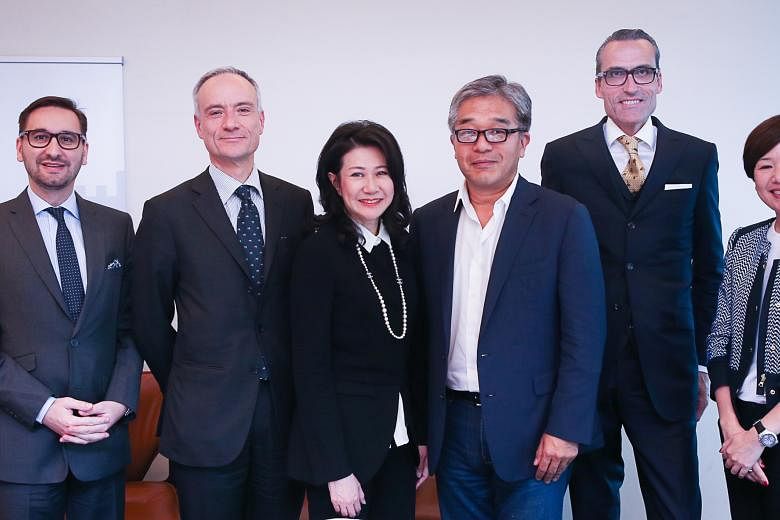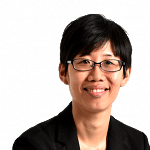You can still make money while undertaking good work and charitable activities, says Hong Kong entrepreneur and philanthropist James Chen.
He told a briefing on Wednesday that he started lens-making company Adlens 10 years ago to help people correct poor eyesight.
At the same time, he founded Vision for a Nation, a British-based charity to provide eyecare and affordable spectacles to needy folk in developing countries.
"We realised that giving them glasses is not enough, they may have issues due to eye diseases," added Mr Chen, who is in Singapore for a two-day forum organised by UBS, on how family legacies can be created through innovative charity projects. About 200 private philanthropists, social entrepreneurs and business families attended the event, which ends today
The charity's first programme is under way in Rwanda, where people can get eye tests and prescription spectacles for US$1.50 ($2) each. However, Mr Chen acknowledged it is a challenge to balance the profit-making and charity elements of helping people see better.
Ms Junita Ciputra, managing director of Indonesian property developer Ciputra Group, told the conference that empowering the poor to develop their own micro-businesses helps to solve two of the biggest social problems in Indonesia - poverty and unemployment. Her charity programmes in Indonesia aim to teach schoolchildren across all ages how to create value.
Many degree-holders are unable to find a job in Indonesia so starting a business is their surest bet to earning a living, added Ms Ciputra.
In the spirit of "empowering the powerless through entrepreneurship", her programme has trained 10,000 migrant workers in making business plans, identifying opportunities and creating value. She regards it as a success when migrant workers go back to their villages to set up businesses to provide jobs for themselves and others.
Advising wealthy Asians on how to develop philanthropy projects like those set up by Mr Chen and Ms Ciputra is a growing business for UBS' ultra-high-net-worth (UHNW) segment. According to a recent report by UBS and PwC, the
average age of Asian billionaires is 57, an age when many begin to consider how to preserve and transfer their wealth. This could trigger a wave of philanthropic giving.
Establishing a lasting family legacy over generations is becoming a big concern for Asian billionaire families as they grow in size, said Mr Josef Stadler, head of global UHNW at UBS Wealth Management.
Philanthropy is one way in which they can transmit family values across generations, he said.


